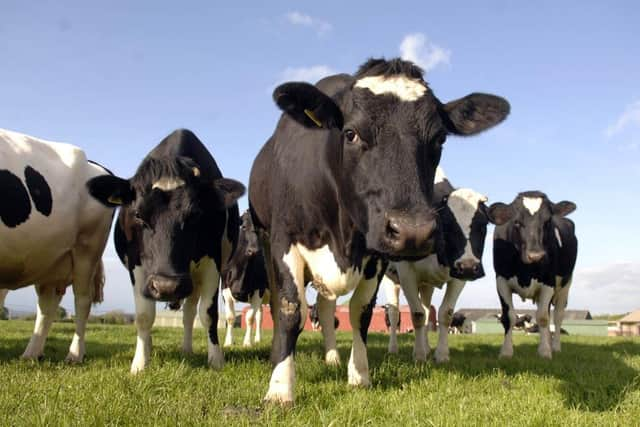COP26: Green farming talk draws crowds at climate summit in Glasgow
The event, titled Nature: the unsung hero of the food system, was hosted by environmental charity WWF Scotland and featured speakers from home and abroad.
The focus was on agroecology – an approach inspired by natural ecosystems and the interactions between plants, animals, humans and the environment – and how it can help tackle climate change and boost biodiversity.
Advertisement
Hide AdAdvertisement
Hide AdPanellists were: Scottish Greens MSP Lorna Slater, minister for green skills, circular economy and biodiversity; John Mwangi, Kenya chair of the Network for Ecofarming in Africa;
James Owen, the Welsh government’s deputy director of land management; and German politician Renate Künast, from Alliance 90/The Greens.
Farmers from across Scotland also contributed.
Johnnie Balfour, from Balbirnie Home Farms in Fife, said: “To me agroecology means looking after our ecosystem while producing food, fibre or fuel.


“My unreasonable hopes for COP26 are that world leaders realise what good land management can do for our environment when the wrong disincentives are taken away and farmers and other land users are able to do the right thing.”
Nikki Yoxall, from Howemill Farm in Aberdeenshire, said: “COP is a really exciting opportunity for people to think more holistically about how we address the twin crises of climate and biodiversity-loss.
“I really hope leaders and thinkers from across the world can consider a broader approach to natural capital, how we can take into account the massive benefit that livestock can bring to our countryside and how they help us to create really interesting habitats, that they are not solely focused on emissions and we see some strong commitments on phasing out fossil fuels.”
Event chair Lang Banks, director of WWF Scotland, said: “Farmers are often at the frontline of climate change, feeling the effects of extreme and unpredictable weather, but they can also be part of the climate solution.
He added: “Natural habitats, soils and vegetation have huge capacity to capture and store carbon.
Advertisement
Hide AdAdvertisement
Hide Ad“By working with nature and transitioning to an agroecology approach, Scotland and the rest of the world could reduce agricultural emissions and help us farm with nature to deliver a sustainable and fair food system.”
A message from the Editor:
Thank you for reading this article. We’re more reliant on your support than ever as the shift in consumer habits brought about by coronavirus impacts our advertisers.
If you haven’t already, please consider supporting our trusted, fact-checked journalism by taking out a digital subscription.
Comments
Want to join the conversation? Please or to comment on this article.
